Uncategorized
Rally First-Timer: Survival Guide
If you’re a rally first-timer, entering your first race can feel like a mammoth task. It’s confusing, intimidating, and overwhelming: you’ve no idea what to expect, how to prepare, and what awaits once you get that “Go!” at the start line. Will you be able to cover the distance and keep up the speed? Will you finish?
Coming into the racing world as a rally first-timer isn’t easy, but you’re not alone feeling unsure or nervous. Just about everybody does – and everybody makes rookie mistakes. To help you navigate the weird and wonderful world of cross-country racing as a rally first-timer, we spoke to our fearless leader, Tamas Esch, about his first rally experiences.
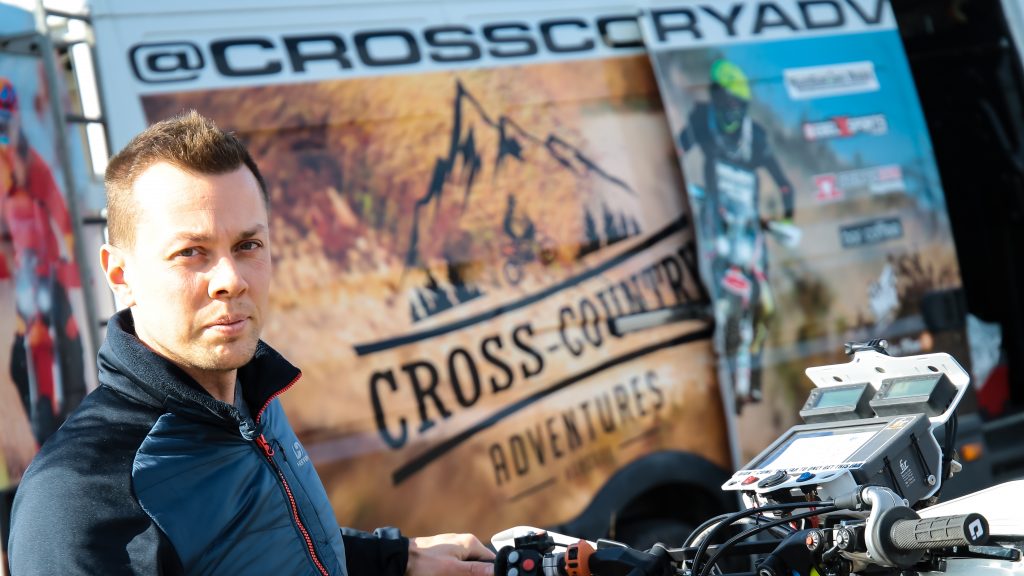
Tamas started out like so many of us: by adventure riding. At the end of the day, rally racing is adventure riding on steroids, so if you’re already putting in the miles on your ADV bike, you’re getting closer to your goal of racing a rally. After several years of exploring the world on two wheels, Tamas entered his first rally race, and he’s been hooked ever since.
So what do you need to race your first event as a rally first-timer, what are some of the most common pitfalls, and what can you do to prepare? Here’s what Tamas had to say:
-How did you prep for your first rally?
I did a ton of research browsing other riders’ blogs, social media posts, forums, and videos to figure out how to best prepare my bike and how to navigate using roadbook and decode all the symbols and abbreviations in it. Frankly, it wasn’t easy, because I couldn’t find a good resource that would have all of this information in one place – I had to really dig deep and piece the information together from multiple different sources. The biggest
obstacle was the lack of information about participating in a race: I had no idea exactly what kind of paperwork, racing license, or type of insurance I needed to enter to a rally. What will the course of the event will look like? How will I know where to go and when? What the hell s a timecard? It was astonishing to me that information about all of this just wasn’t available, and I had to spend countless hours trying to figure it all out.
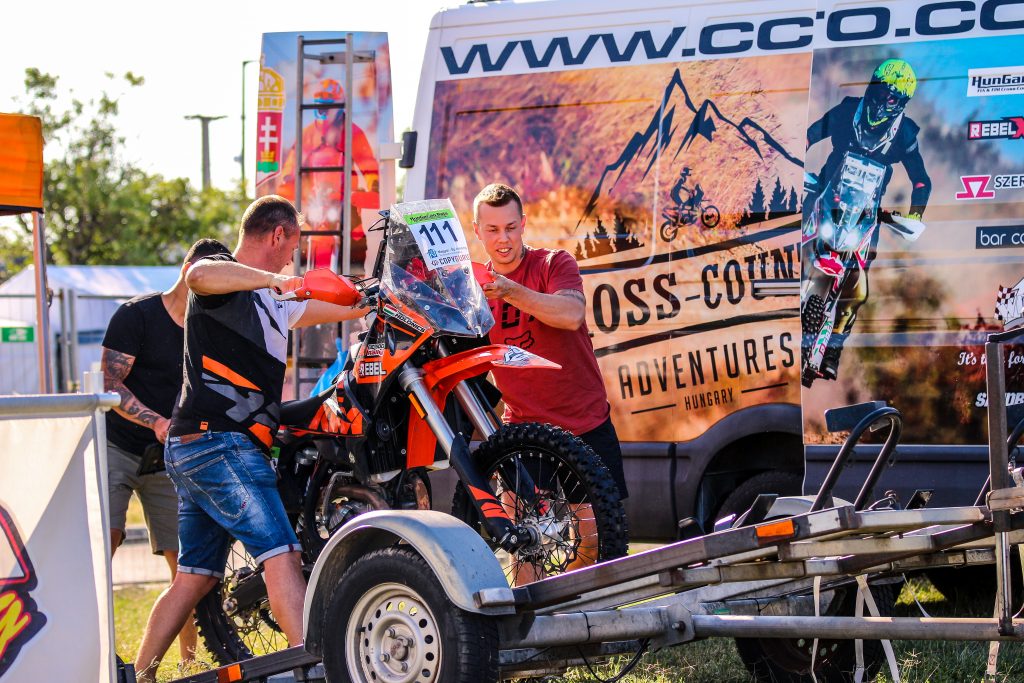
-What were some of the most unexpected things you had to do or learn for your first rally?
I was taken aback at just how much the roadbook slowed me down during my first race. Now, I know it’s because I was concentrating on all the little details too much trying to extract too much information from the roadbook; it isn’t always necessary, and with time and experience, you learn which information in the roadbook is crucial and which isn’t, which allows you to ride faster. But during that first race, it was tricky.
-How did you train for the rally in terms of riding?
Before my first rally race, I simpy went on off-road trips on my ADV bike. I tried to ride as much off-road as I could standing up on the pegs, because I new that I had more control of the bike and could read the terrain better this way. I used my Garmin to navigate with waypoints only to force myself to check the map while riding; this isn’t roadbook training, of course, but it helped me to train my body and mind to focus on the riding and the navigation at the same time.
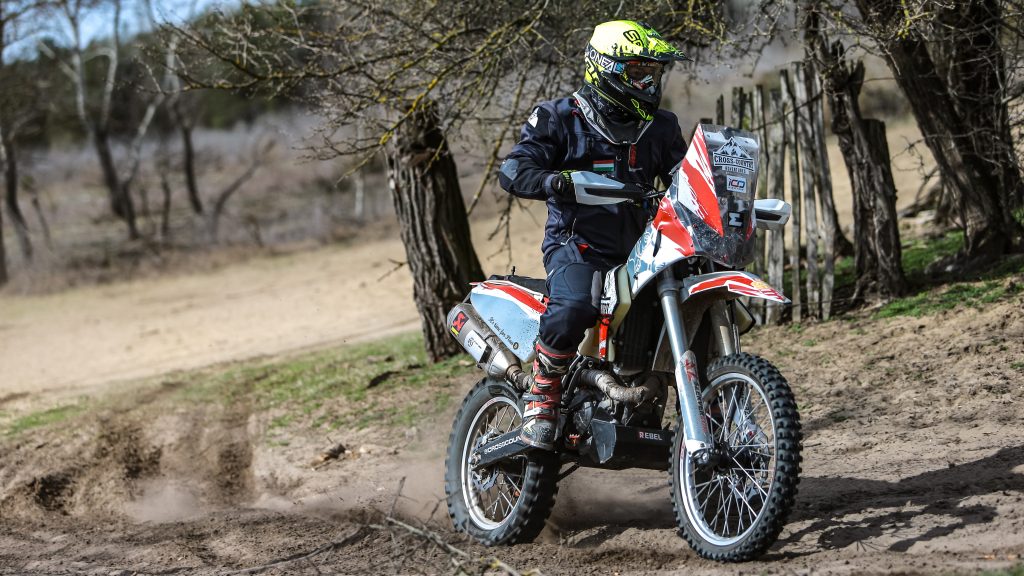
– How did you learn roadbook navigation, and was it hard to navigate at first?
I found that I could use a free application (rallynavigator.com) to generate roadbooks from a track (eg, a .gpx file) on my Garmin, so I made a roadbook for myself. It’s a lot of work to check the route, write out the notes, and put everything together, and it wasn’t too much fun because I already knew the route, but it was challenging when I asked a friend to make a roadbook for me.
Later, we asked some rally organizers in Hungary to run some roadbook training days and that was a good initiative: since then, we have complete training days before each race in the national championship to simulate rally racing. These events are starting with a presentation for newbies, then we get our roadbook and timecard, and there are tracks marshalls, radio guys, and a medical team to ensure the safety of the event. It’s a much better and safer way to learn roadbook navigation than going it alone!
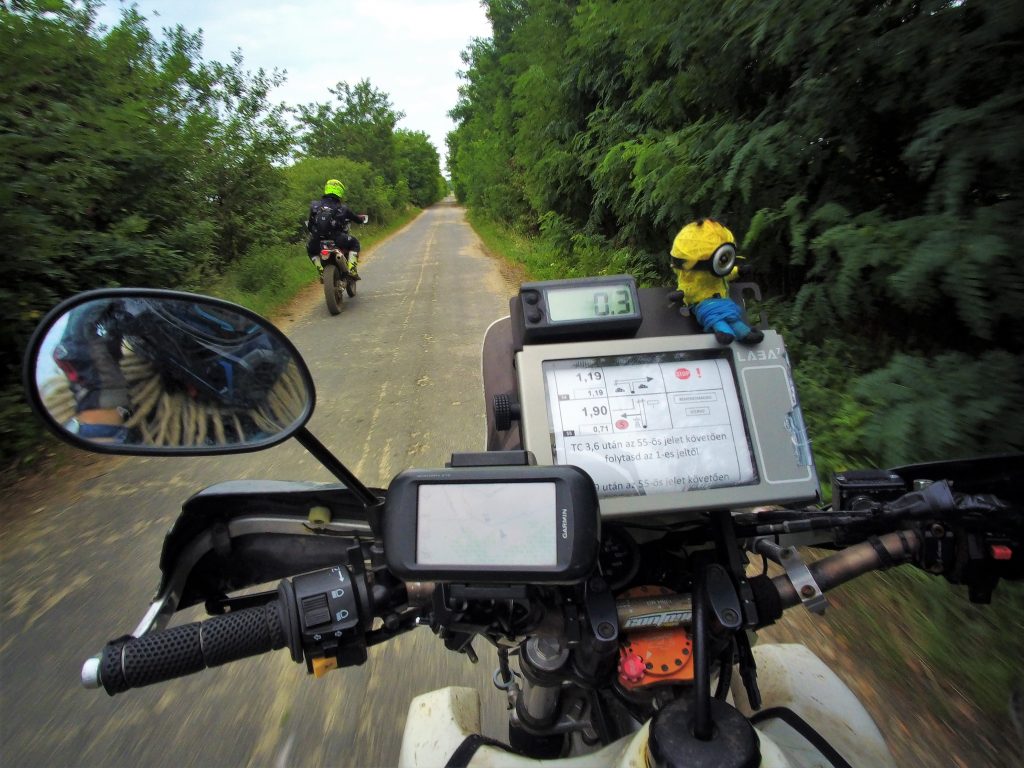
-What are some of the key lessons you learned during your first rally?
I think the biggest takeaway is this: you can put a lot of effort trying to plan every single moment, but it’s simply impossible to prepare for everything. Rally racing taught me that it is more important to be creative, improvise, and think up of solutions on the spot rather than have a perfect plan for every possible scenario – you simply don’t know what may happen, and you’ll need to think on your feet. Instead of planning and prepping forever, just go and do a rally – you’ll learn a lot more this way, even if you come in at the back of the pack. Your first rally isn’t about a great sporting result, it’s about the experience. After you’ve done one race, you’ll have a much better picture of what you need to improve and what you have to work on to do better next time.
-What would you advise to a fellow rally first-timer?
Don’t overthink rally riding, and don’t think about the rally as a race. First of all, rally riders are mostly really good guys and gals: this is a small community made up of a bunch of passionate and helpful people, so don’t panic. You won’t get lost while preparing for the race, during the scrutineering, or while you are trying to fix something on your bike in the bivouac (or on the liaison or special stages). Other riders and rally staff will help you with all your questions and concerns, and more likely than not, you’ll receive plenty of help and advice if something goes wrong with your bike.
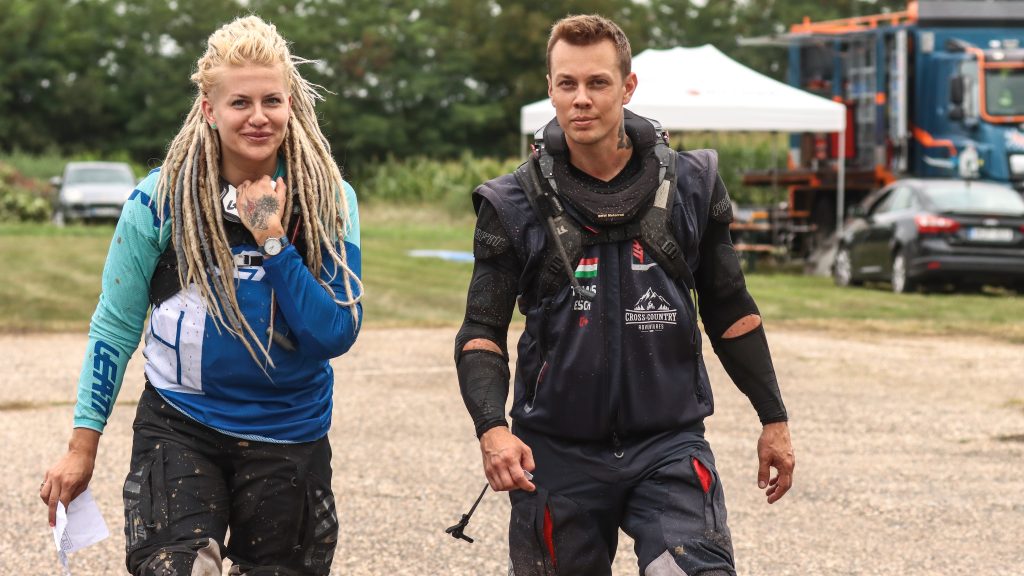
For amateur riders like us, rally riding isn’t a race; the time score is only for us to check our own process. Rally riding is about putting ourselves in mentally and physically challenging conditions, it’s an adventure trip with a couple of rules and guidelines, a fun way to test and improve our offroad riding and navigation skills, and last but not least, an opportunity to make friends with like-minded people all over the world.

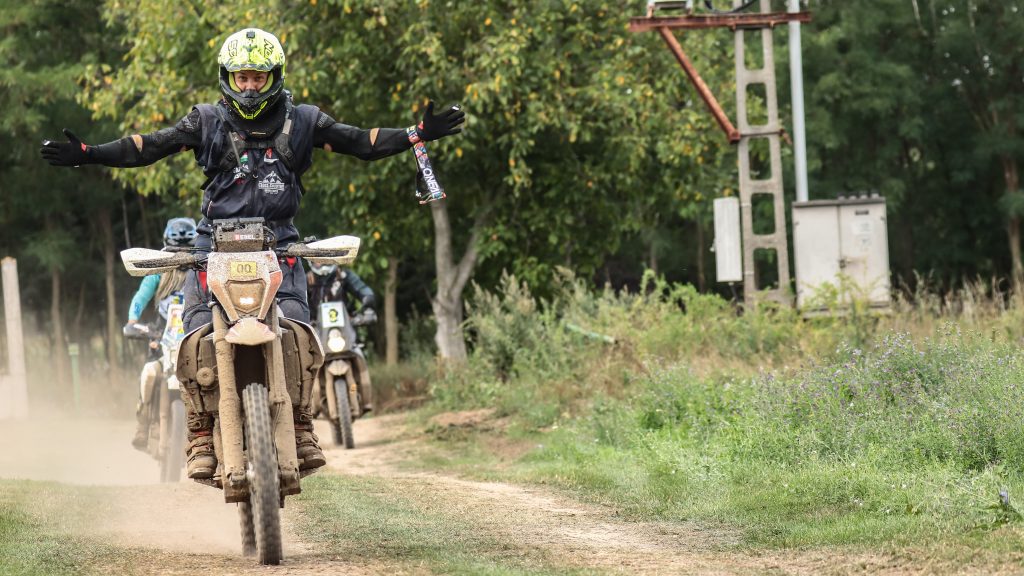
Pingback: Roadbook Navigation Explained: Read and Ride // Cross Country ADV